Contributors: Ailun Shi (UC Berkeley), Claire Scott (UC Santa Barbara), and Sarah Salot (UC Irvine) 2024 blog writing contestants
Let’s be real—no one’s study abroad experience perfectly matches their Instagram saved folder. Every student faces moments that never make it to social media highlight reel.
But here’s the thing: These moments—the messy, uncomfortable, completely unexpected ones—are exactly what transform study abroad from a simple semester away into a life-changing experience.
If you’re considering study abroad, or maybe sitting in your new home-away-from-home right now, you might be nodding along. The good news? You’re not alone and, more importantly, these feelings are actually part of the journey, not a sign you’re doing it wrong or that you made the wrong decision.
Here’s what three students from different UCs have to say about the messy and beautiful bits that make study abroad a once-in-a-lifetime opportunity you simply have to do.
Days Before You Leave: When Doubts Creep In
When you first enroll in the UCEAP program excitement is the prominent emotion, and many find themselves endlessly scrolling through TikTok and Instagram posts, saving them for later. Just the thought of spending time in a new country—one of your choosing—feels like an act of courage, a declaration of independence.
My biggest reason for going abroad was to enrich my personal growth as much as my academic and professional growth during college. But as the departure date approached, doubts began to creep in. Was I making the right decision taking three months off of my job? Would I be able to get through mental hurdles without a support system around me? What if I couldn’t adapt to the new environment thousands of miles away from home? These questions loomed large as I boarded the plane from LAX to FLR in January.
Sarah Salot (UC Irvine)
These predeparture jitters are so common that returning students emphasize the importance of mental preparation. For example, Claire Scott recommends planning how to integrate your lifestyle or hobbies into your routine before you leave.
Before I left, I had the idea that I would figure everything out once I got there, and it turned out this wasn’t the best mindset. For instance, I love to run in my college town, but it took me a while to find a place to be active in my host city because I was overwhelmed with the novelty of it all. I didn’t exercise for about a month, which made me miss my California lifestyle and contributed to it taking me a while to adapt. This could have been avoided if I had simply looked up the places to run prior and found out there was a perfect trail less than a five-minute walk from my residence!
Claire Scott (UC Santa Barbarra)
You can also research your favorite foods that may differ from the traditional foods in your host country. Culture shock is the real deal, and it can be challenging to adjust your diet with all the other changes you’re experiencing at the same time. If you find restaurants or stores that serve those comfort foods, it can curb your homesickness.
Your First Days Abroad: When Big Dreams Hit Reality
Many students also find that the first few days of study abroad become the stories they’ll tell for years to come. Take Ailun Shi’s first morning in Madrid, Spain:
I landed in Madrid at 8 am, hopped in an Uber, checked into my hotel—and at 9 am, I realized that my phone was no longer in my pocket. It was the worst possible way to start out my study abroad. I was in a foreign country with rusty-at-best Spanish skills, sleep deprived and exhausted from a 19-hour journey, and I didn’t know anyone.
What followed was a crash course in problem-solving abroad, all while jet-lagged and alone.
The hotel clerk gave me a map of Madrid—the first paper map that I had read since maybe geography class in middle school. I memorized some directions from Google Maps on my laptop, matched it to the paper map, and headed out. Except it was raining—hard. I was miserable, exhausted, and the addition of the downpour seemed almost poetic. I spent a good chunk of time in the metro station, trying to understand Spanish abbreviations to figure out how to buy a ticket on the machines.
Ailun Shi (UC Berkeley)
The first 72 hours of study abroad will challenge your mind and body in ways you never imagined. Your body clock will be confused, and simple tasks might even feel overwhelming. Fortunately, as your new time zone and setting become familiar, so too will your comfort and confidence.
By mid-afternoon, I had a new phone in hand and a working Spanish SIM card—both tasks communicated in Spanish. I was soaked head to toe and had undergone 27 hours without sleep. I slumped my way back to the hotel, checked-in to my room, and crashed into bed. Day 1 was difficult, but the one nice thing about rock bottom is that things are guaranteed to get better.
Ailun Shi (UC Berkeley)
These uncomfortable first impressions might extend into the classroom, too.
When classes started, they were intriguing, but my major in Business Administration seemed out of place in this new setting. The cultural differences, language barrier, and different academic expectations all seemed to overwhelm me. Did anyone else feel this way? It didn’t seem like it, or at least no one wanted to admit it.
Sarah Salot (UC Irvine)
Finding Your Footing: When Small Victories Add Up
The transformation from lost tourist to confident student explorer doesn’t happen overnight. Instead, it builds gradually through small victories and daily discoveries. Sometimes, it’s as simple as finally mastering the front door of your apartment building, as Ailun discovered in Madrid:
Our landlord handed us five keys: one for the outer front door of the building, the inner front door, and the mailbox, and then two for the front door of the apartment. These had to be inserted and turned at the same time! That first time took several minutes, and for the next two months, it slowly took less time. By the time I left, I could open it in under five seconds.
Ailun Shi (UC Berkeley)
The key is remembering that adjustment takes time. As Claire discovered:
Even the unfortunate occurrences, like getting fined for not buying a public transportation ticket (yes, that happened) or missing your train because you went to the wrong train station (yes, that happened too), will eventually become the lessons you learn and the stories you look back on. Despite the difficulties, having the chance to explore a whole new part of the world is something special that not everyone can say they have experienced!
Claire Scott (UC Santa Barbara)
Each small victory, from unlocking a stubborn door to mastering your daily commute, builds your confidence for bigger adventures ahead. Soon enough, you’ll find yourself planning weekend trips to new countries, forming lifelong friendships, and creating the stories you’ll tell for years to come.
Homesickness hit me hard, especially at night as my body struggled to adjust to the nine-hour change. The time difference made it difficult to connect with my friends and parents back home. By the end of the 10 weeks, the homesickness had faded, replaced by a genuine sense of pride and belonging. I realized that my initial struggles were a necessary and common part of the journey, helping me grow more resilient and adaptable.
Sarah Salot (UC Irvine)
Finding Connection: When Strangers Share Your Journey
As things slowly began to change, I started to bond with my fellow students, who I realized were also navigating their own challenges. We formed a close-knit group, exploring the city together, traveling every weekend and going out for meals. The classes, which initially seemed daunting, turned out to be incredibly interesting and immersive. I was taking courses in fashion and media communications as well as Italian food culture, all of which opened my eyes to Italy in ways I never anticipated.
Sarah Salot (UC Irvine)
The beauty of study abroad lies not just in the topics you study and places you’ll go, but in the people who share your journey. Those first connections often start with shared challenges, as Ailun found in Madrid:
I made Spanish friends through my classes, one of whom introduced me to other friends (the Spanish boys, I called them) and invited me to celebrate the Calçotada Festival, a Catalonian celebration of eating spring onions. A few weeks later, I introduced them all to hot pot for the first time. The waitress, who could speak Spanish, spoke to me in Chinese even though she was addressing the entire table. Spanish was a language that I had only ever used in conjunction with English, but for the first time, I translated Chinese to Spanish for everyone.
Ailun Shi (UC Berkeley)
Having a support system makes culture shock feel less overwhelming, and your connections with other students transform your entire study abroad experience.
Study abroad is a blast, and traveling with friends during the off time was one of the fun aspects. My trip to Munich, Germany, for Oktoberfest was a dream come true that made the 10-hour bus ride and sleeping in tiny tents in 40 degrees worth it.
Claire Scott (UC Santa Barbara)
The Real Transformation: When Study Abroad Becomes Part of You
As your time abroad draws to a close, you’ll start to notice that it’s not just your surroundings that have become familiar—you’ve changed too. The challenges that once seemed overwhelming become the stories that shaped you. As Ailun discovered:
While studying abroad has been far from perfect, Spain was a time of milestones for my Spanish ability. During the first weeks in Spain, whenever I spoke Spanish the speaker would reply in English. As months passed, that happened less and less. I’m sure my American accent was apparent every time I opened my mouth, but the exposure and time made me more confidant and I no longer stuttered or heated up in embarrassment.
Ailun Shi (UC Berkeley)
Sarah found that her experience reshaped not just her perspective, but her future path:
Immersing myself in the Italian way of life was transformative. I picked up bits of the language, learned to savor leisurely meals, and adopted the local pace of life. I also developed a deep appreciation for Italian art, fashion, and cuisine. The immersion wasn’t just about adapting to a new culture, it was about growing as an individual and expanding my perspective.
Sarah Salot (UC Irvine)
The truth about study abroad isn’t found in perfectly filtered Instagram posts or carefully planned itineraries. Like your initial transition to college in California, the best memories might just be in the messy moments of getting lost and finding your way. It’s in the courage to keep trying when classroom expectations are a little different from what you’re used to. It’s in the friendships forged over missed trains and shared adventures. And most importantly, it’s in the person you become—someone who knows that the best experiences in life aren’t perfect, they’re real. They’re challenging, beautiful, and absolutely worth it.
If there’s one thing I would tell a student contemplating study abroad, it’s this: Do it and don’t look back. The only regret you’ll have at the end of your time in college is not taking this leap.
Sarah Salot (UC Irvine)
Take a look at these stories that can help you acclimate to the messy parts of study abroad so you can start enjoying the beautiful ones:
- Even if you’re living with unique mental health challenges and have fears about studying abroad, those worries can’t stop you from having this experience if you maintain your mental health abroad.
- Culture shock is real, no doubt it, but here’s why you shouldn’t fear it—it’s actually helping you.
- Studying abroad is a roller coaster of emotions—here are the stages you’ll experience so you can recognize them when they come.


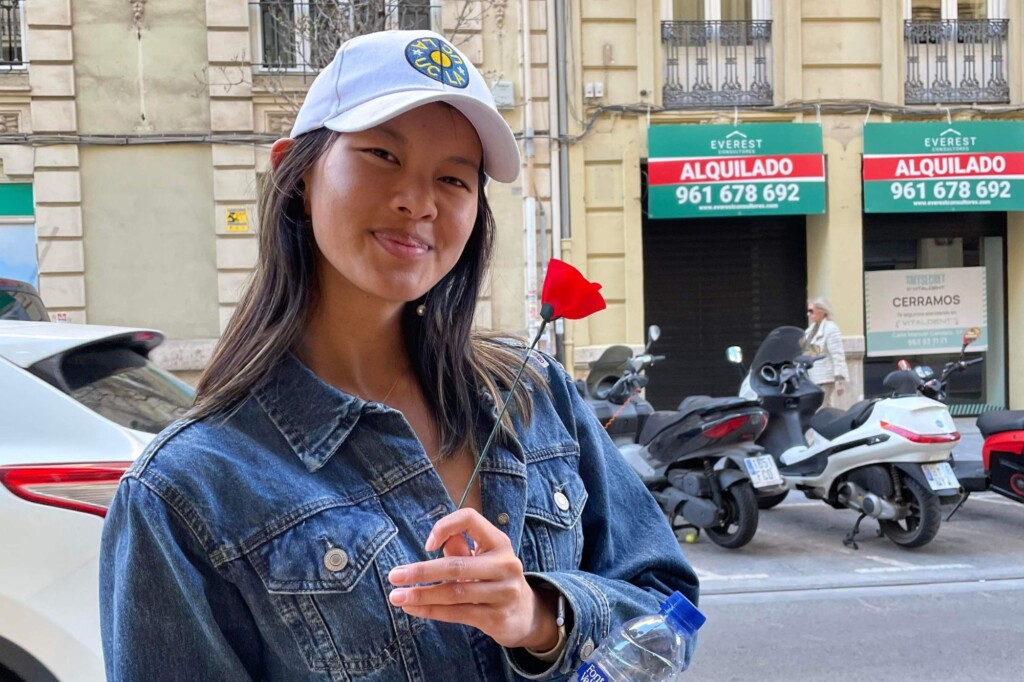
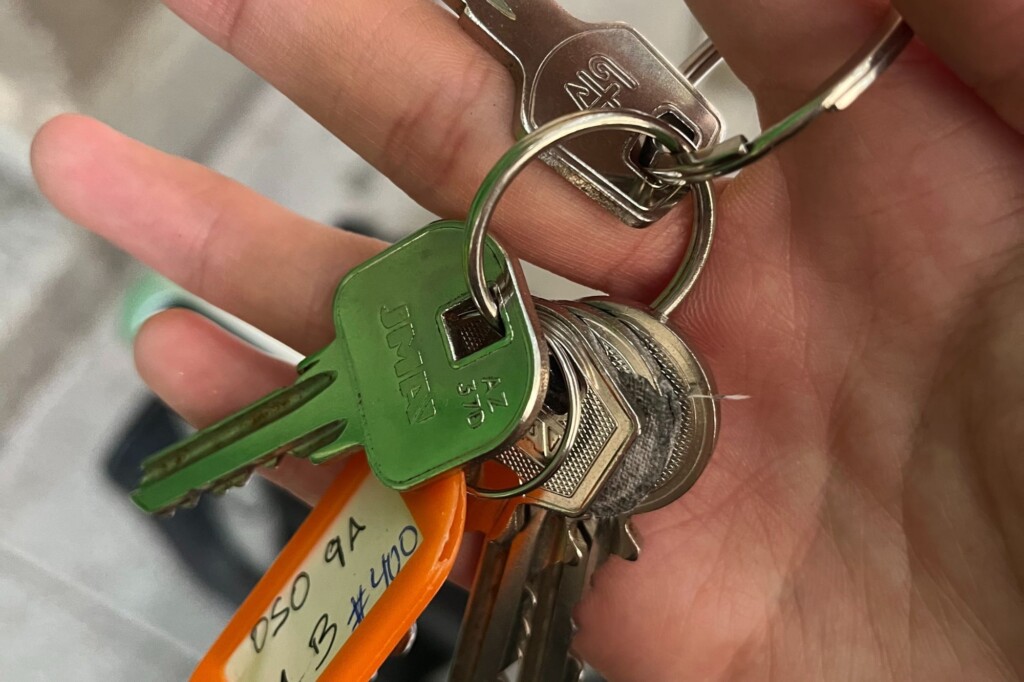


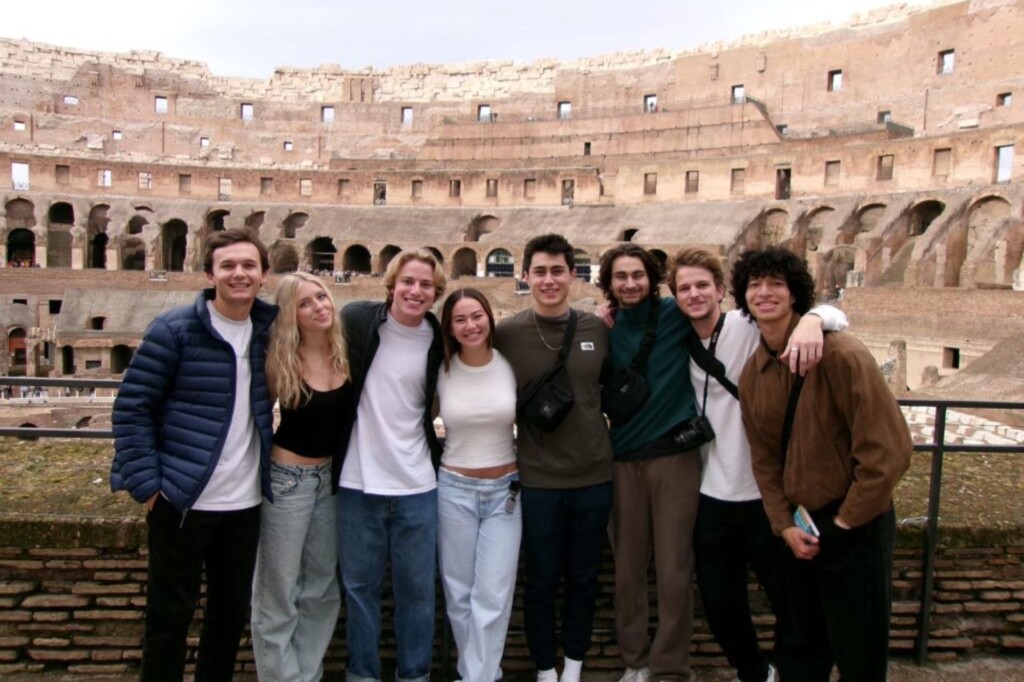



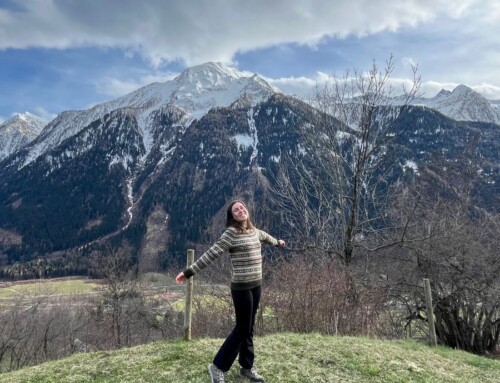

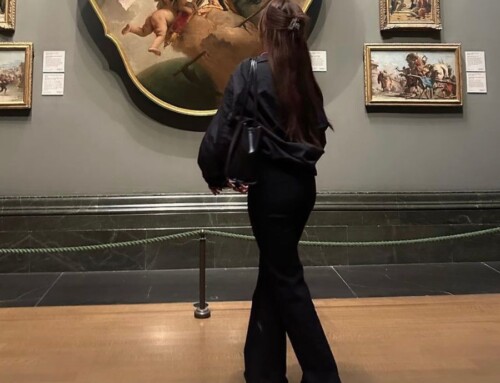

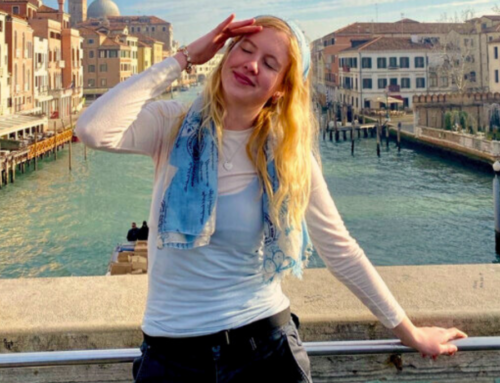
Leave A Comment